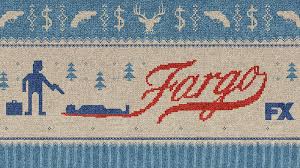As the Fall Television season commences, and no real shows grabbing the majorities attention, it seems that producers have turned to a new form of Television show. This past year, every few months a hot new mini series blew up the internet. Weather it was from Fargo(FX) or Top of the Lake(BBC) there was something for everyone.
This year we have the return of fan favorite American Horror Story(FX) and a shocking announcement of Fargo 2 as well. Fox has also added the likes of Gracepoint to the mix of current mini series, which is an adaptation of british series BroadChurch.
The real question is why are networks green lighting more and more of these short mini series shows? There are a couple of answers to this question:
1. With no promise of a second season, there’s less pressure on show producers to play for the numbers. This means that producers can focus on telling the story and not weather they will be picked up for a second season.
2. Since the mini series has a definite ending, it is required to give people closure. One thing that has been a pet peeve of mine is the fact that so many shows just don’t know how to end properly. It is such an impossible task to try and end a series so that the fans are happy. With the mini series format, shows are able to create a story and put it to bed quickly before digging themselves into a hole.
3. Due to the short amount of episodes, a mini series can be placed in the perfect season. Most shows start either in September or January. This causes an over-saturated playing field of media for the viewer to experience. With regular series shows being confined to this format to get all of their episodes in, a mini series has the freedom to start their shows later or earlier, usually allowing them to dominate the ratings during their hour.
Networks will continue to give the green light to mini series’ which is what The History Channel has been doing for years now with their overdramatized historic narratives. Expect to see more and more of these pop up. If this idea continues to spread, this could vastly change the TV schedule playing field as we know it, this could be the demise of series television as we know it.








